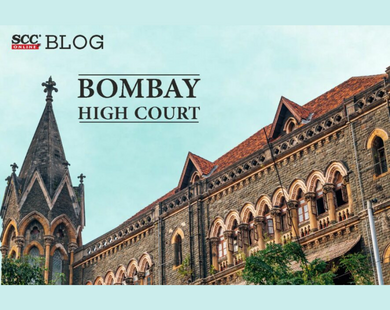Bombay High Court: In a case filed challenging the judgment and order of conviction passed by the Special Judge, by which the appellant/ accused was held guilty for the offense punishable under Sections 376(2)(i) of the Penal Code, 1860 (IPC) and Sections 4 and 6 of the Protection of Children from Sexual Offences Act, 2012 (POCSO Act) wherein the Trial Court has sentenced the appellant/accused of the offense punishable under Section 376(2)(i) of IPC to suffer imprisonment for life, which shall mean imprisonment for the remainder of his natural life along with fine of Rs. 25,000/- with the stipulation of default, a Division Bench of Vinay Joshi and Vrushali V Joshi, JJ., reduced the sentence and directed to suffer rigorous imprisonment for a term of 14 years with fine and default clause, as ordered by the trial Court.
The Court noted that there is no scintilla of doubt that the accused has sexually assaulted a 7-year-old vulnerable child based on the evidence put on record. Thus, on re-appreciation of the entire material, the Court opined that the prosecution has duly proved the guilt of the accused and the trial Court has rightly recorded the finding of guilt, and it calls for no interference.
On the issue of proportionality of sentence, the Court noted that the Trial Court held the appellant guilty of the offense punishable under Sections 4 and 6 of the POCSO Act, and Section 376(2)(i) of IPC, however, by virtue of Section 42 of POCSO Act, has imposed the sentence under Section 376(2)(i) of IPC being the punishment greater in degree.
Placing reliance on Mohd. Firoz v. State of Madhya Pradesh, (2022) 7 SCC 443, the Court observed that one of the prime objectives of criminal law is the imposition of appropriate, adequate, just, and proportionate sentences commensurate with the nature and gravity of the crime and the way the crime is done. There is no straitjacket formula for sentencing an accused on proof of the crime. The courts have evolved certain principles: the twin objective of the sentencing policy is deterrence and correction.
The Court further stated that the principle of proportionality prescribes that the punishments should reflect the gravity of the offense and the criminal background of the convict. Since the punishment prescribed for the offense punishable under Section 376(2)(i) of IPC is greater in degree than the punishment prescribed for the offense punishable under Sections 4 and 10 of the POCSO Act, the accused is to be sentenced for the offense punishable under Section 376(2)(i) of IPC.
The Court, however, recorded that the Court must consider a variety of circumstances namely – manner of crime, atrocities committed by the accused, victims’ condition, age of the accused, and other related factors before sentencing an accused.
The Court remarked that there is no denial that the convict was a young boy of 20 years shouldering the responsibility of his widowed sister and her son. Moreover, he has no father. If he has been incarcerated for a considerable period, that would serve the purpose. imprisonment for a term of 14 years would be adequate, to teach him a lesson.
Considering that the imposition of a 14-year term would require him to remain behind bars for a further considerable period, therefore, the Court held that to maintain the conviction, the sentence is reduced to undergo rigorous imprisonment for 14 years with a fine along with default clause.
[Pradip v. State of Maharashtra, 2022 SCC OnLine Bom 6502, decided on 02-12-2022]
Advocates who appeared in this case:
Shri R.M. Daga, Advocate for the Appellant;
Shri H.D. Dubey, A.P.P. for the Respondent.
*Arunima Bose, Editorial Assistant has reported this brief.







